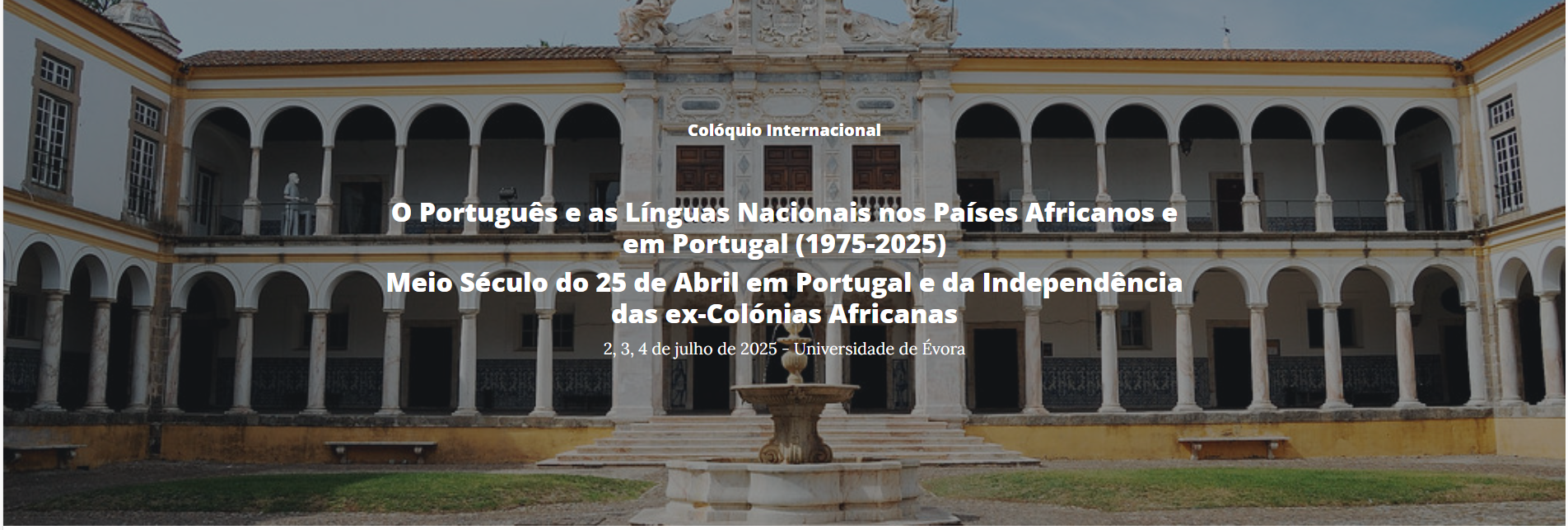featured
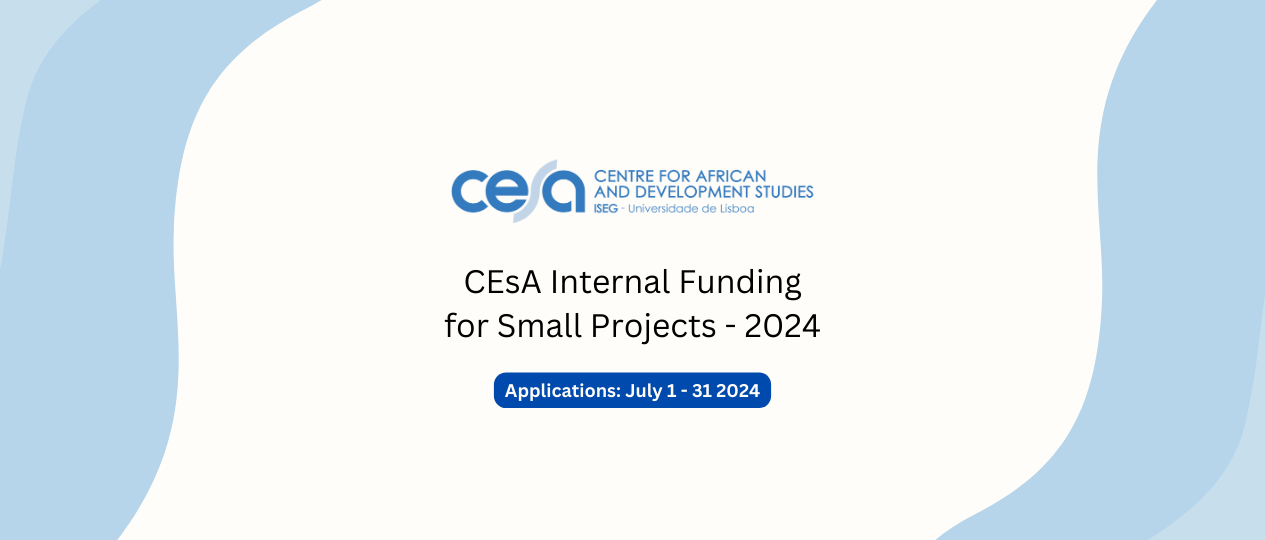
CEsA Internal Funding for Small Projects – 2024
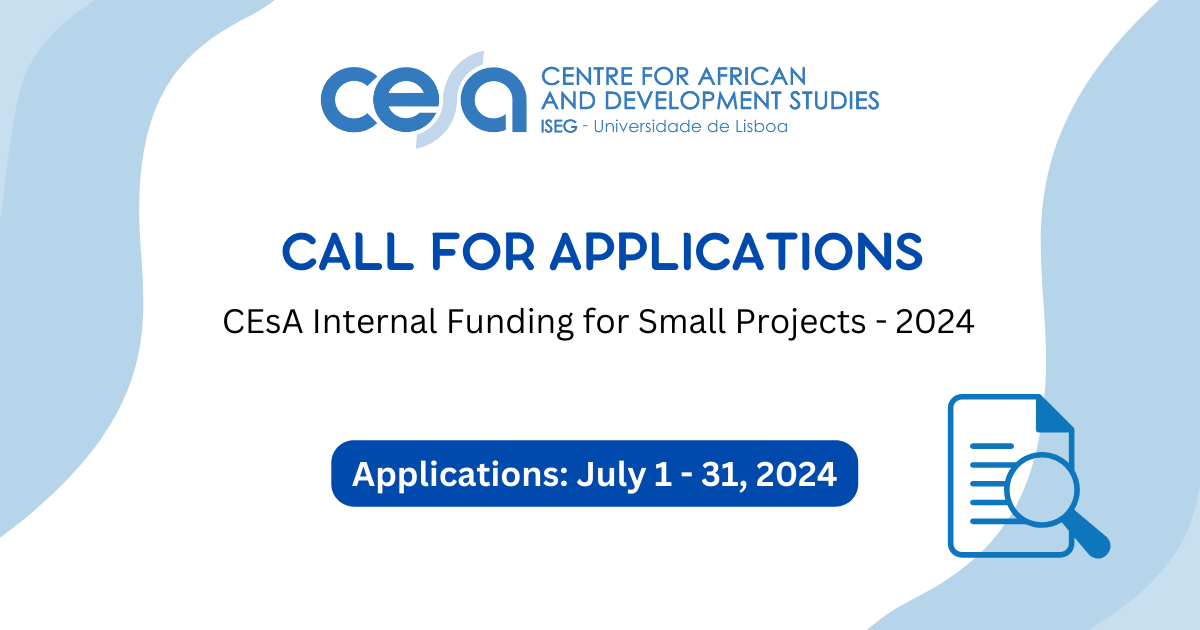
CALL FOR APPLICATIONS
CEsA Internal Funding for Small Projects – 2024
The fundamental aim of this initiative is to enhance the research activities of CEsA and its members and, in particular, to create the necessary conditions for increasing both the number and quality of the Centre’s publications in indexed journals and the number of potentially successful applications for larger-scale external funding.
Applications and supporting documents must be submitted in English and sent by email to cesa@cesa.iseg.ulisboa.pt, Cc. to comunicacao@cesa.iseg.ulisboa.pt.
Further details are available in the Regulations applicable to this call (download it by clicking on THIS LINK).
Below is a summary of the main points:
Applications
July 1 to 31, 2024 (until 11:59 PM – Lisbon time).
Funding
Budget: twelve thousand euros (€12,000.00), to be divided between different projects.
Research Themes: within one of the Centre’s two lines of research: Economics, Development and International Cooperation; and History, Cultures and Identities.
Principal researchers: must be a member of CEsA.
Outputs: must be entirely presented as CEsA outputs.
Jury mainly composed of elements external to the CEsA Board.
Criteria: scientific merit, feasibility of the proposals, potential to result in publications and/or applications to larger-scale external funding.
Results
Announcement by September 15, 2024, via CEsA website and by email.
Author: CEsA Communication (comunicacao@cesa.iseg.ulisboa.pt)
Images: CEsA/Reproduction
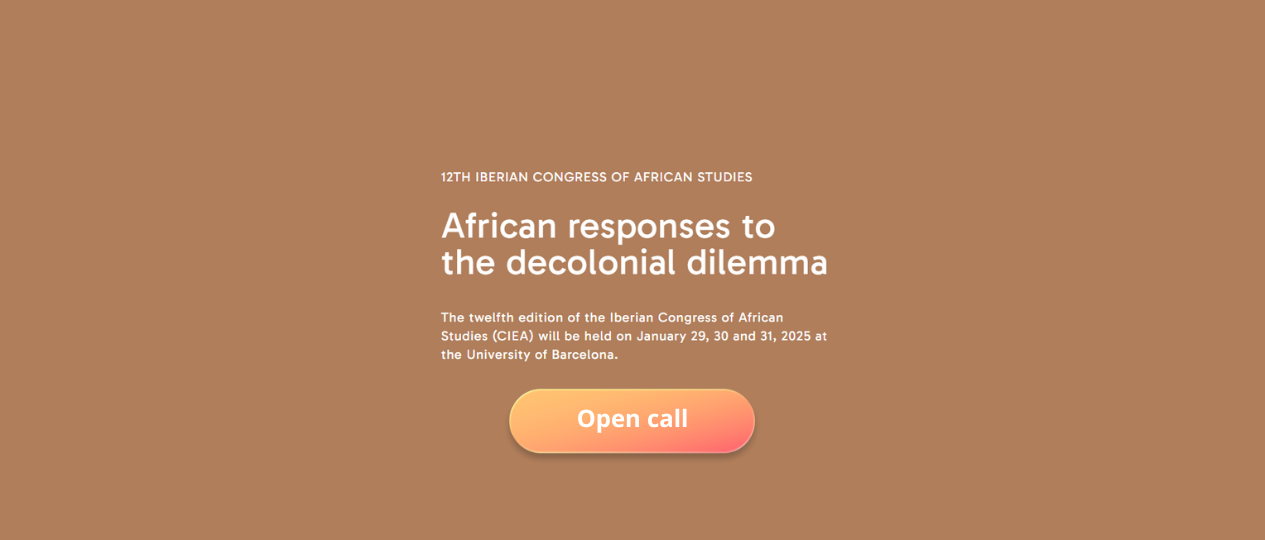
Jessica Falconi and Elena Brugioni Chair Panels at the 12th Iberian Congress of African Studies
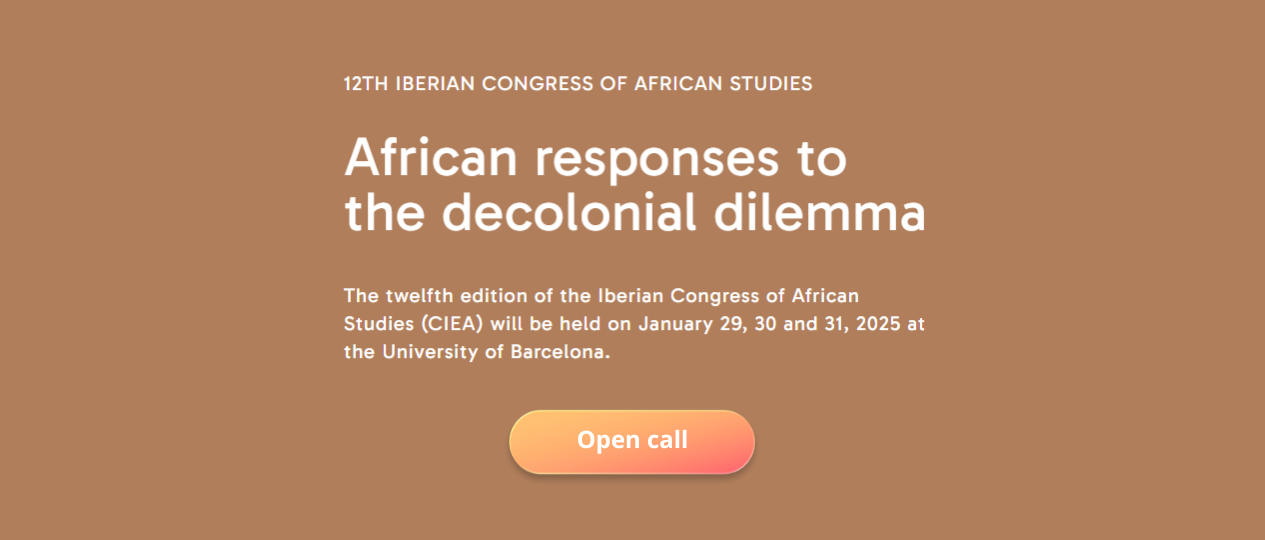
The 12th Iberian Congress of African Studies, scheduled to take place on January 29, 30, and 31, 2025, at the University of Barcelona, is currently accepting proposals for presentations until September 12, 2024. CEsA researchers, Jessica Falconi and Elena Brugioni, will serve as coordinators for panels 3 and 4, respectively. Panel 3, titled “Traces of an African Anticolonial Archive in the Iberian Peninsula (1933-1975),” will be coordinated in collaboration with Maria del Mar García (UAB – Universitat Autònoma de Barcelona). Panel 4, “The ‘Literary Environmentalism of the Poor’. Towards an Ecocritique of African Literatures,” will be chaired solely by Brugioni.
For further information on the call for papers, please visit the congress website: https://redestudiosafricanos.org/en/call-for-proposals-for-communications-at-ciea12-open-until-september-12-2024/
Author: CEsA Communication (comunicacao@cesa.iseg.ulisboa.pt)
Images: CEsA/Reproduction
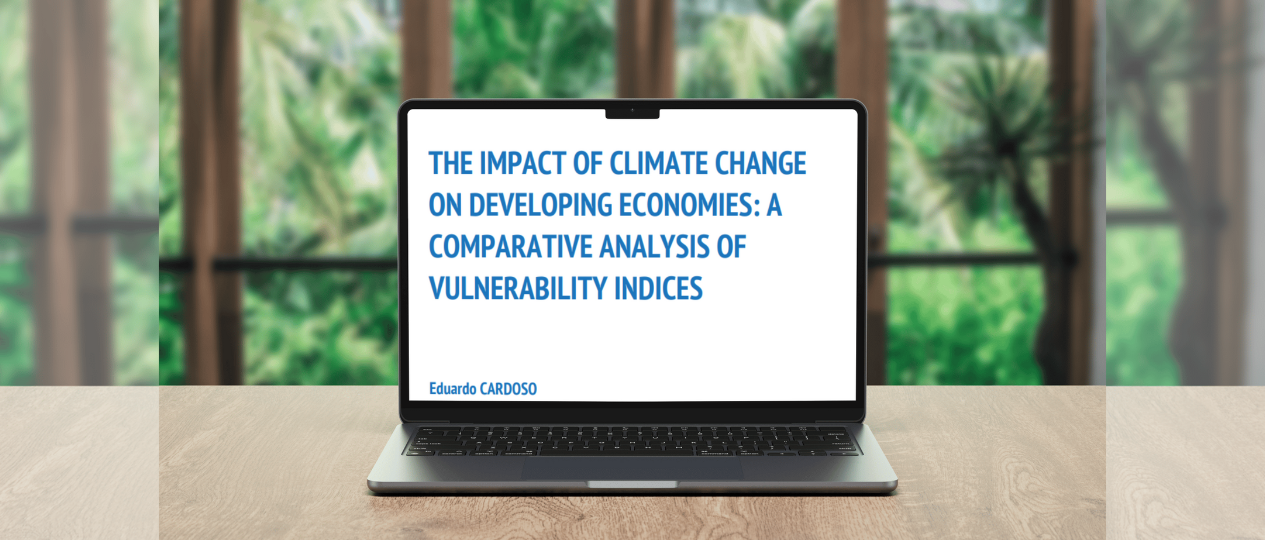
CEsA Working Paper n. 200/2024 carries out a comparative analysis of key indices that classify countries’ vulnerability to climate change
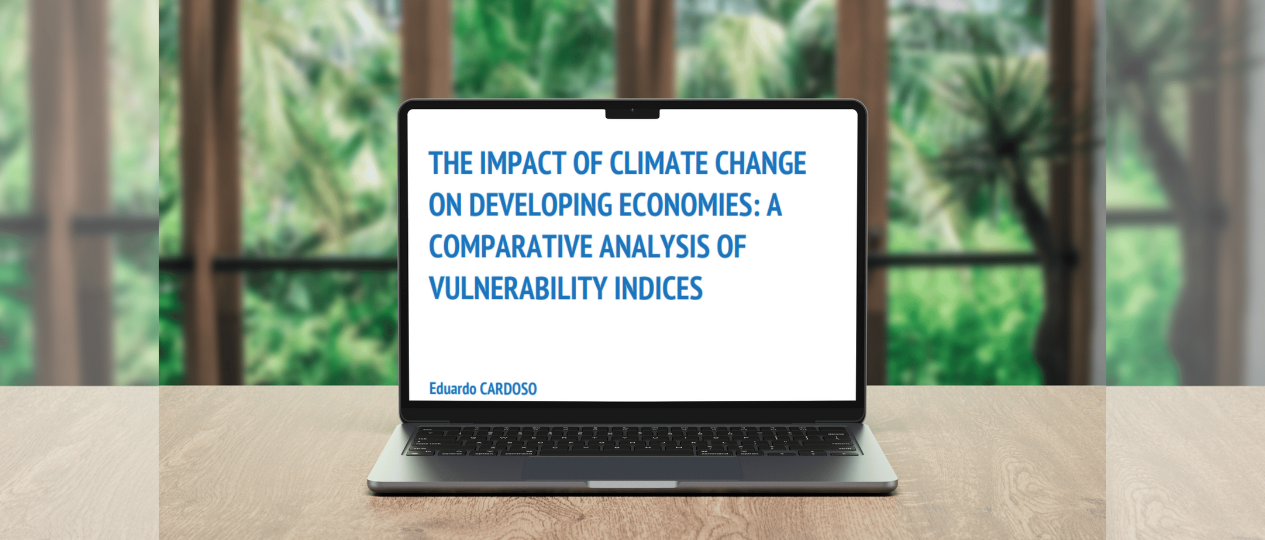
CEsA has published the Working Paper no 200/2024, entitled “The Impact of Climate Change on Developing Economies: A comparative analysis of vulnerability indices”, in English, authored by Eduardo Cardoso, who holds a Master degree in International Economics and European Studies from the Lisbon School of Economics and Management (ISEG), Universidade de Lisboa. The main objective of this Working Paper is to analyse whether key indices in climate science consistently classify countries’ vulnerability to climate disruption.
The author reviews the literature on the impact of climate change in developing countries, followed by a comparative analysis of the EVI, ND-GAIN, INFORM, and WRI indices from 2014 to 2020. The findings indicate that the diversity in the components of vulnerability lead to divergent results. In conclusion, the author identifies the need for a holistic approach that results in vulnerability indices adapted to specific objectives and contexts.
Click here to access the Working Paper no 200/2024.
Abstract:
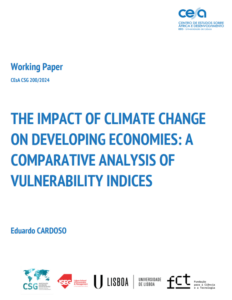 In order to make informed decisions on climate finance and policies, there is an increasing need to develop an index to assess countries’ vulnerability to climate change. However, differing concepts and methodologies have led to varied views on which countries are most vulnerable and deserve more international financial support. This Working Paper examines whether key indices in climate science consistently classify countries’ vulnerability to climate disruption. It begins by reviewing literature on the impact of climate change on developing countries, followed by a comparative analysis of the EVI, ND-GAIN, INFORM, and WRI indices from 2014 to 2020. The findings indicate that while these indices are valuable for understanding and monitoring vulnerability, their differing components lead to divergent results. This research underscores the importance of a holistic approach to vulnerability assessment and calls for informed selection of indices based on specific objectives and contexts.
In order to make informed decisions on climate finance and policies, there is an increasing need to develop an index to assess countries’ vulnerability to climate change. However, differing concepts and methodologies have led to varied views on which countries are most vulnerable and deserve more international financial support. This Working Paper examines whether key indices in climate science consistently classify countries’ vulnerability to climate disruption. It begins by reviewing literature on the impact of climate change on developing countries, followed by a comparative analysis of the EVI, ND-GAIN, INFORM, and WRI indices from 2014 to 2020. The findings indicate that while these indices are valuable for understanding and monitoring vulnerability, their differing components lead to divergent results. This research underscores the importance of a holistic approach to vulnerability assessment and calls for informed selection of indices based on specific objectives and contexts.
About the author:
Eduardo Cardoso holds a Bachelor’s degree in Political Science from the University Institute of Lisbon (ISCTE) and a Master of Science in International Economics and European Studies from Lisbon School of Economics and Management (ISEG), Universidade de Lisboa.
Click here and get to know all the Working Paper Collection of CEsA
Author: CEsA Communications (comunicacao@cesa.iseg.ulisboa.pt)
Images: CEsA/Reproduction

Did you miss a session? Watch the 2024 Development Studies Seminars’ presentations
The 2024 Development Studies Serminars’ sessions took place from February 29th to May 29th, 2024 at ISEG. Some presentations were authorised and recorded, and are now available on the CEsA YouTube channel, in the playlist “Seminários de Estudos de Desenvolvimento 2024” (access this link). Check them out:
“Capital Markets by Design? The rise of financial development planning in Southeast Asia”, Lena Rethel (University of Warwick), March 14, 2024. In English.
“Entre Comentário e Ativismo: A Perspetiva Ecocrítica na Literatura Africana”, Marta Banasiak (CEsA/CSG/ISEG/ULisboa), March 21, 2024. In Portuguese.
“Reimaginando a Superdiversidade Urbana: Questões metodológicas em foco”, Kamila Krakowska (Leiden University), April 18, 2024. In Portuguese.
“‘Life Writing’ e o Problema da Mediação na Historiografia Contemporânea Moçambicana”, Colin Darch (University of Cape Town), May 2, 2024. In Portuguese.
“Where do we go from here? Navigating Power Inequalities Between Development NGOs in the Aid System”, Nicola Banks (University of Manchester), May 16, 2024. In English.
Note: The recordings of the other sessions were not made available either because they did not have the permission of the speakers or because of technical constraints in capturing the videos.
Read more:
YouTube Playlist: “Seminários de Estudos de Desenvolvimento 2024”
Author: CEsA Communication (comunicacao@cesa.iseg.ulisboa.pt)

CEsA History Website and Brochure
The moment of celebrating 40 years of the foundation of CEsA, and 30 years of the creation of ISEG’s Masters in Development and International Cooperation, offers us a unique opportunity to remember the trajectory and legacy in the field of research in Portugal, with the launch of a website and a brochure on the history of CEsA: https://cesa.rc.iseg.ulisboa.pt/cesa-40-anos/
